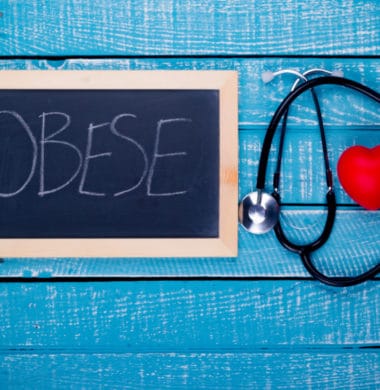Connection Between Obesity and Heart Health

At South Denver Cardiology, our heart doctors regularly promote healthy lifestyle changes in diet and exercise levels. The goal of these changes is to reduce obesity among our patients. Obesity is associated with significantly increased risks of heart disease. Avoiding obesity can help improve the health of your heart to reduce your risk of heart disease and other cardiovascular complications.
Here’s how obesity impacts your heart health.
Obesity Increases Heart Risk Factors
Obesity impacts your heart health mostly through related health conditions, such as:
- High cholesterol levels
- Diabetes
- High blood pressure
These three conditions are mostly responsible for the increase in the risk of heart disease.
Cholesterol is a form of lipid, a chemical closely related to fat. High levels of body fat (especially abdominal or visceral fat) tend to increase lipid levels in the bloodstream as well, including cholesterol. Cholesterol contributes to heart disease risk because it is the main component of arterial plaque – the buildup that narrows the arteries that supply your heart with oxygen and sustenance. When some of this plaque breaks away, it can block the arteries, causing a heart attack and/or heart failure.
Diabetes can cause significant damage to your blood vessels, including the blood vessels supplying your heart. The damage can make it easier for plaque to stick to the blood vessel walls. In addition, diabetes can damage the nerves controlling your heart. Damaged nerves increase your risk of cardiac arrhythmias (irregular heartbeats). Irregular heartbeats can contribute to plaque breaking free to block the arteries in your heart.
High blood pressure is when the heart pushes blood through your blood vessels harder than normal, often in a way that is unhealthy. Cardiologists are not entirely sure of how the two conditions are connected. Partly, fat compresses the blood vessels, increasing blood pressure as the blood vessel volume decreases. In addition, obesity triggers hormones and nerves that stimulate the heart to pump harder. High blood pressure stresses your heart, but it also increases the risk that plaque will break away and block your heart’s arteries.
The three conditions above account for most of the heart disease risk linked to obesity. However, there is some evidence that obesity might also directly impact heart disease risk.
How Obesity Directly Impacts Heart Disease Risk
 Some studies show that the above conditions don’t account for all the heart disease risk linked to obesity. Heart doctors aren’t entirely sure how obesity can directly impact heart disease risk.
Some studies show that the above conditions don’t account for all the heart disease risk linked to obesity. Heart doctors aren’t entirely sure how obesity can directly impact heart disease risk.
One potential link is inflammation. Inflammation is an immune response that you notice mostly as swelling and redness at the site of an injury or in response to illness. However, some cells release hormones that trigger inflammation without injury, what is known as systemic inflammation. Large fat deposits release these inflammation triggers. This leads to swelling that can potentially narrow your arteries even further, making the risk of blockage even greater.
Heart Doctors Can Help Combat Obesity
With the strong links between obesity and heart disease, heart doctors realize how important it is to combat obesity. This is more than just lifestyle changes, it’s a form or preventive medicine: an approach to living that can reduce your risk of heart disease.
The two main tools to combat obesity are changes to diet and increasing exercise. Dietary changes mean not just reducing the number of calories you consume but making the calories healthier. This means reducing red meat, reducing unhealthy fat consumption, and increasing vegetable consumption. There are many approaches to this, but one highly effective approach is the Mediterranean diet. This traditional diet incorporates whole grains, high levels of vegetables, healthy fats, and non-animal proteins to control weight and reduce cholesterol.
There are many ways to increase exercise levels. Aerobic exercise seems to be most effective at reducing obesity and heart disease risk. However, it’s important to do what you can but also to start slow, gradually building up your levels of healthy exercise. Furthermore, for those who may face mobility challenges, taking steps to install a stair lift from https://stairlifts-near-me.co.uk/ can be a wise decision to ensure safe and convenient access to different levels of your home, allowing you to maintain an active and independent lifestyle. Contact professional installers if you need Quick Stairlift Installation Services.
Let South Denver Cardiology Help You Get Heart Healthy
If you are looking for heart doctors who want to reduce your risk of heart disease before you need surgery, let South Denver Cardiology help. We emphasize lifestyle interventions when possible. We also use powerful imaging techniques to scientifically gauge your risk levels so that we can recommend appropriate steps. There’s no need to jump to dramatic interventions when your heart disease risk is low.
Please call 303-744-1065 or use our online form to schedule an appointment with a heart doctor at our central location in Littleton, or at one of our branch locations.
- Can I Shovel Snow with a Heart Condition? - March 18, 2024
- 6 Tips for Resuming Outdoor Exercise this Spring - March 11, 2024
- Early Signs of Heart Disease - February 26, 2024
Sign Up
As with any health concerns, your specific treatment program should be discussed thoroughly with your primary care physician as well as any specialists who may need to be consulted – like a cardiologist.
Sign Up
